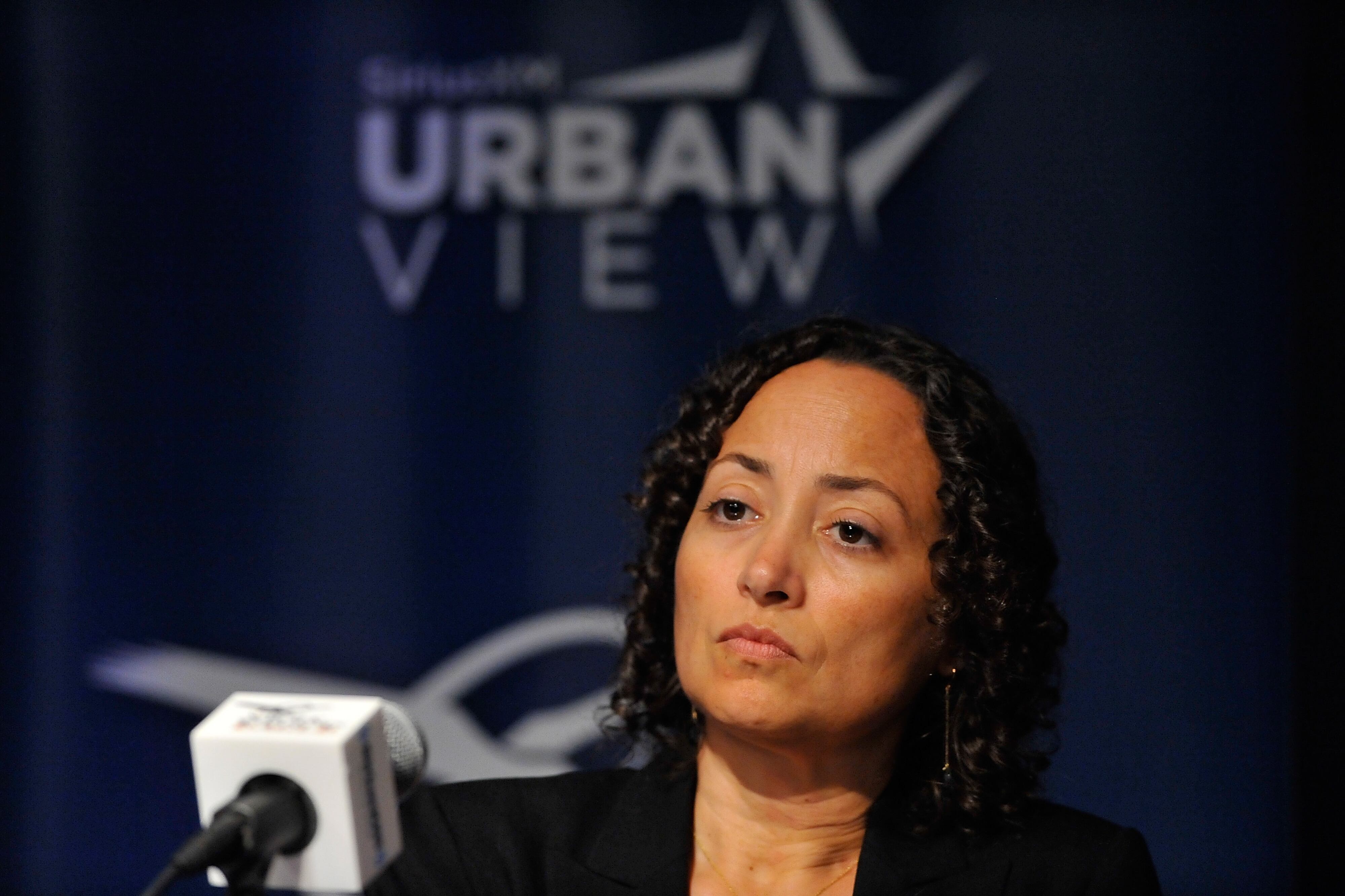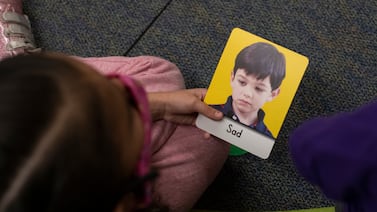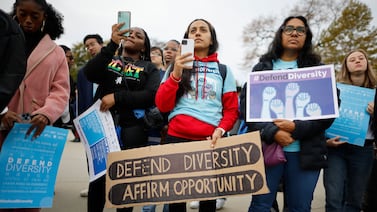Catherine Lhamon, the nominee to lead the federal education department’s Office for Civil Rights, told lawmakers Tuesday that she would push to protect transgender students, reinstate Obama-era guidance around student discipline, and monitor the post-pandemic recovery of students with disabilities and students of color.
Lhamon laid out her vision for the Office for Civil Rights, also known as OCR, in a tense confirmation hearing. The work of enforcing the nation’s civil rights laws in schools, she said, holds “particular importance” as the country tries to move past the pandemic.
“OCR’s work now is as urgent as it ever has been,” said Lhamon, who also held the assistant secretary position for three and a half years during the Obama administration.
If confirmed, Lhamon would take over an office whose work shifted notably under President Trump. Former Education Secretary Betsy DeVos rescinded several guidance documents that Lhamon helped to issue — notably around student discipline and the rights of transgender students — and under DeVos’ leadership, the civil rights office limited its investigations into allegations of discrimination at schools. Disorganization within the office during the Trump years left staff unable to do their jobs properly, some staff have said.
Lhamon said she would return to a more “even-handed enforcement” approach and would work to rebuild the office, so that “we can expect civil rights enforcement to be real and lived for students in schools.”
Here’s a look at some of the big civil rights issues senators raised, and how Lhamon said she would approach them.
The rights of transgender students
Several senators raised questions Tuesday about whether transgender students should be allowed to participate or compete in sports teams that correspond with their gender identity. The issue has gained prominence in recent months as several states have moved to ban transgender girls and young women from participating in women’s sports.
The Biden administration has said that LGBTQ+ students are protected from discrimination based on their sexual orientation and gender at school, which extends to sports and after-school clubs. How the office for civil rights plans to enforce those rights will be a key question for the incoming assistant secretary.
When asked whether she thought transgender girls should be allowed to compete on women’s teams, Lhamon said she would apply the right to protection from sex discrimination to all students. She also pointed to a case she worked on during the Obama administration in which a student who used a wheelchair was told he could be on a track team, but his times wouldn’t count. The resolution she helped reach, she said, allowed the student to compete as a full member of the team.
“I would want to bring that lens to the work in any athletics context so that we’re finding a way not to discriminate against a student who is unusual, not to discriminate against a student who wants to be on the team,” she said.
Students with disabilities
Most civil rights complaints in education center around students with disabilities, and Lhamon said that work would be a priority. Investigations will depend on the kinds of complaints the office receives, Lhamon said, but she said she would seek to address the unlawful restraint and seclusion of students, who often have disabilities.
The use of those techniques has come under new scrutiny after investigations in several states, including Illinois, Colorado, and Virginia found many instances in which students were improperly held down or isolated. Lhamon recalled a case she worked on in which a mother could hear the screams of her 9-year-old child, who was being restrained, while she was driving up to the school.
“That child may never recover from the harm that the school visited on the child, and the child could have died,” Lhamon said. “Those kinds of circumstances are ones I hope never to see repeated.”
Lhamon also suggested there should be “appropriate civil rights guardrails in place” for students with disabilities who continue to learn virtually and that it’s crucial for the office to be collecting data about how students with disabilities, English learners, and students of color are doing in the wake of the pandemic.
“Priorities for me are to know what kinds of opportunities are available to whom,” she said.
Student discipline
A key piece of Lhamon’s legacy from her time leading the office under Obama is the guidance she signed that encouraged schools to reduce suspensions and expulsions for students of color. She made clear on Tuesday that she wants that guidance back in place.
“I think it’s crucial to reinstate guidance on the topic, and I think it’s crucial to be clear with school communities about what the civil rights obligations are,” she said.
If confirmed, Lhamon would likely be involved in drafting any new guidance and would have to navigate calls to change or expand its reach. Some civil rights groups, for example, have asked the Biden administration to place stricter limits on school police, given how Black and Native students, especially, have been disproportionately arrested at school.
School integration
So far, the Biden administration has signaled a willingness to make school desegregation a part of the federal education agenda, most notably through a $100 million proposal to fund the work of districts that want to make their schools more racially or economically diverse.
But how involved the office for civil rights will be in enforcing school desegregation orders, or preventing districts from taking actions that would further entrench segregation in their schools, remains an open question.
In her opening statement, Lhamon noted that her mother attended racially segregated schools in Virginia both before and after Brown v. Board of Education was decided, and that one of the civil rights lawyers who argued the case, Oliver Hill, often drove her mother to school with his son. That experience, Lhamon said, informs her civil rights work. But she didn’t offer many details about how she plans to lead the department on this issue.
When asked what role the federal government should play in integrating schools, Lhamon said she thought it was “crucial” that students are given an opportunity to learn in “environments that reflect the world” and that she was eager to oversee the federal magnet schools program, which often funds schools meant to attract students from different racial and economic backgrounds.






